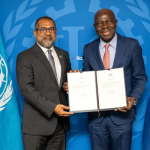
The Maldives government is ramping up efforts to tighten the noose on tax evasion within its lucrative tourism sector. As Parliament reviews new bills proposing significant tax hikes, attention is turning to how some resorts are dodging their fiscal responsibilities through cunning loopholes, and how the Maldives Inland Revenue Authority (MIRA) plans to tackle this rampant issue.
Tax Hikes Targeting the Tourism Industry
In a bold move to restore financial stability and manage soaring national debt, the government has submitted several bills to Parliament aiming to increase taxes within the tourism sector. Key among these is an amendment to the Goods and Services Tax Act, proposing a rise in the Tourism Goods and Services Tax (TGST) from 16% to 17% starting June 2025. This change is projected to inject an additional MVR 201.9 million into state coffers next year.
Simultaneously, there’s a push to double the Green Tax levied on tourists. Establishments currently charging USD 6 per day would see the rate jump to USD 12, while those charging USD 3 would increase to USD 6. This hike is expected to generate an extra MVR 963.6 million in revenue.
These proposed tax increases are part of a larger strategy to stabilise state finances. However, they also shine a spotlight on the tourism sector’s chronic issue: tax avoidance.
Resorts Exploiting Loopholes to Dodge Taxes
Despite the tourism industry being the backbone of the Maldivian economy, contributing significantly to tax revenue, there’s a dark underbelly of tax evasion that’s hard to ignore. Resorts and tourism establishments have been identified as key players in avoiding their full tax obligations, exploiting legal grey areas to minimise payments of TGST and Green Tax.
Commissioner General of Taxation Hassan Zareer shed light on these challenges in an exclusive interview. “While most resorts are compliant, we’ve encountered instances of aggressive tax planning and potential avoidance schemes,” he revealed. “Identifying these arrangements, especially those involving exclusive deals with foreign tour operators, is particularly challenging.”
One of the major issues is transfer pricing manipulation. Resorts engage in exclusive contracts with foreign tour operators, setting prices that don’t reflect the actual value of the services provided. This allows them to shift profits overseas and declare lower taxable income locally.
Moreover, the absence of destination-based rules in the Goods and Services Tax Act means the Maldives misses out on GST for the final price paid by tourists. “We don’t receive GST on the actual amount tourists pay for their stay, resulting in a lower tax liability compared to the real value of services rendered,” Zareer explained.
Smaller establishments like guesthouses add another layer of complexity. Poor record-keeping and underreporting are common, making it easier for these businesses to slip under the tax radar.
MIRA’s Battle Plan Against Tax Dodgers
Faced with these cunning tactics, MIRA is not sitting idle. The authority is pushing for legislative changes to close these loopholes and bolster its enforcement capabilities. Plans are underway to amend the Administrative Taxation Act, granting MIRA enhanced powers to collect both tax and non-tax revenue more effectively.
Attorney General Ahmed Usham confirmed that these amendments aim to “streamline the recovery of outstanding state dues,” which currently amount to a staggering MVR 16 billion, including fines.
MIRA has already begun naming and shaming defaulters. Recently, it publicly listed 170 individuals and businesses in the tourism sector who failed to meet their TGST and Green Tax obligations for the second quarter of 2024. These defaulters, each owing more than MVR 100,000 (USD 6,485), were exposed after ignoring multiple reminders and notices.
But is public humiliation enough to deter well-heeled resorts with deep pockets and political clout?
Zareer acknowledges the uphill battle. “Taxpayers who continue to have compliance issues will face further enforcement actions as per our enforcement policy,” he stated firmly. These actions include freezing bank accounts, initiating legal proceedings, and potentially suspending government services to the non-compliant entities.
However, when asked whether MIRA anticipates challenges in enforcing these measures against powerful resorts, Zareer remained diplomatic. “We are considering collective actions at the government level to ensure compliance,” he said, sidestepping direct mention of any political or economic pushback.
The Tug-of-War Between Revenue Recovery and Economic Vitality
While the government’s aggressive stance on tax collection is commendable, there’s a delicate balance to maintain. The tourism industry is the lifeblood of the Maldivian economy, and overzealous taxation could deter investment and drive tourists to competing destinations.
The proposed tax hikes could make holidays in the Maldives less affordable, especially for budget-conscious travellers. Increased airport taxes and doubled Green Tax rates might push tourists to consider other tropical paradises offering better value for money.
Moreover, the industry’s frustration is palpable. Recent regulations requiring all tourism-related revenue to be deposited into local banks have already stirred discontent, with stakeholders citing operational constraints and loss of financial autonomy.
Is Raising Taxes the Silver Bullet?
With a mountain of unpaid taxes looming over the nation, some question whether increasing tax rates is the optimal solution. Zareer himself emphasised that recovering outstanding dues is a priority. “Although the outstanding amount is large, a significant portion is attributed to a small number of taxpayers,” he noted. “We’re in contact with these taxpayers to see how the accumulated dues can be recovered while maintaining compliance with future obligations.”
Critics argue that before burdening compliant taxpayers with higher rates, the government should focus on collecting what’s already owed. Tightening enforcement and closing loopholes could potentially recover billions without risking the industry’s competitiveness.
A Call for Strategic Collaboration
As the bills make their way through Parliament, all eyes are on how the government will balance fiscal recovery with economic growth. The tourism sector’s concerns are valid; without strategic collaboration and fair enforcement, the Maldives risks killing the “goose that lays the golden eggs.”
Zareer remains cautiously optimistic. “MIRA regularly advises the government on gaps in the tax legislation and works with policymakers to close such gaps,” he said. “It’s a regular exercise, not focused on any specific sector.”
His words suggest a willingness to work hand-in-hand with the industry to find solutions that are both effective and equitable. But whether this collaborative spirit will translate into tangible change remains to be seen.
The Maldives stands at a crossroads. Cracking down on tax evasion within the tourism sector is undeniably crucial for the nation’s financial health. However, the government must tread carefully to avoid undermining the very industry that fuels its economy. Closing tax loopholes and enforcing compliance should take precedence over blanket tax hikes that could alienate key industry players and deter tourists.
As resorts continue to exploit legal grey areas to minimise their tax liabilities, MIRA’s resolve will be tested. The authority’s ability to enforce the law impartially, even against the most influential resorts, will be a litmus test for the Maldives’ commitment to financial transparency and fairness.
In the high-stakes game of fiscal policy and economic sustainability, one thing is clear: the Maldives can’t afford to play fast and loose with its golden goose.











